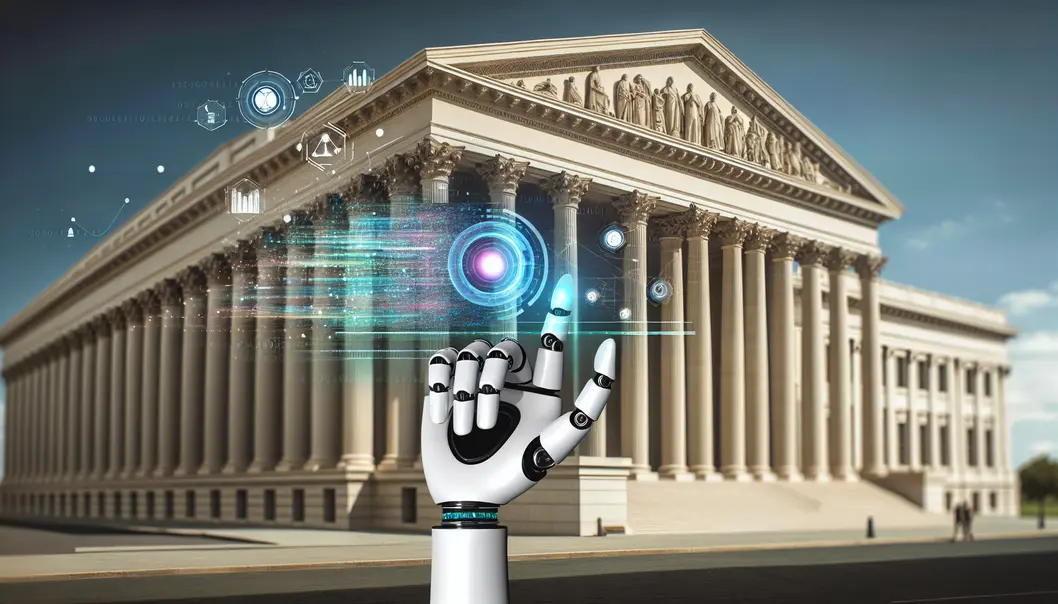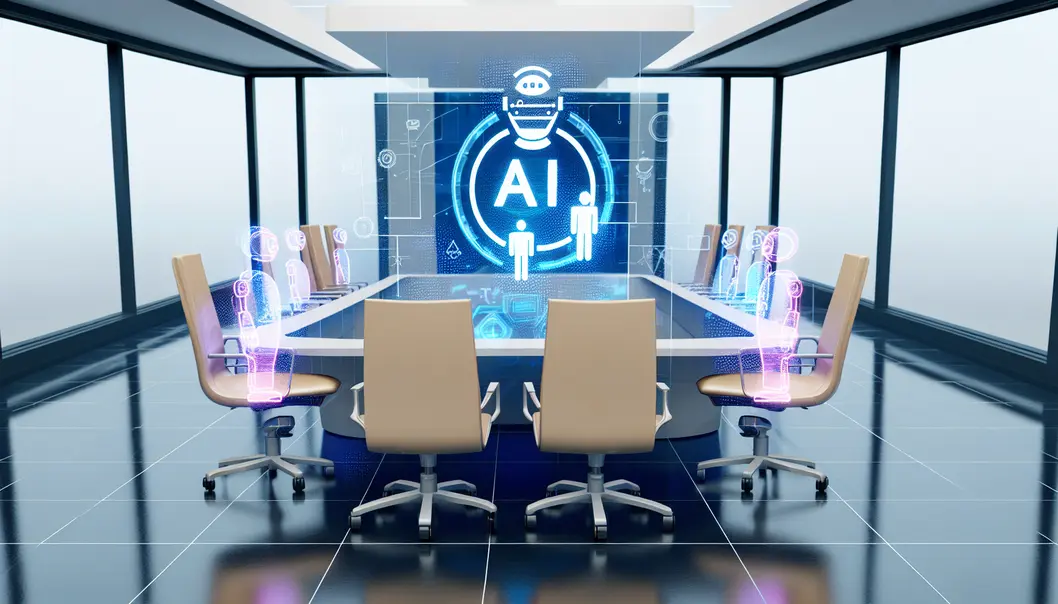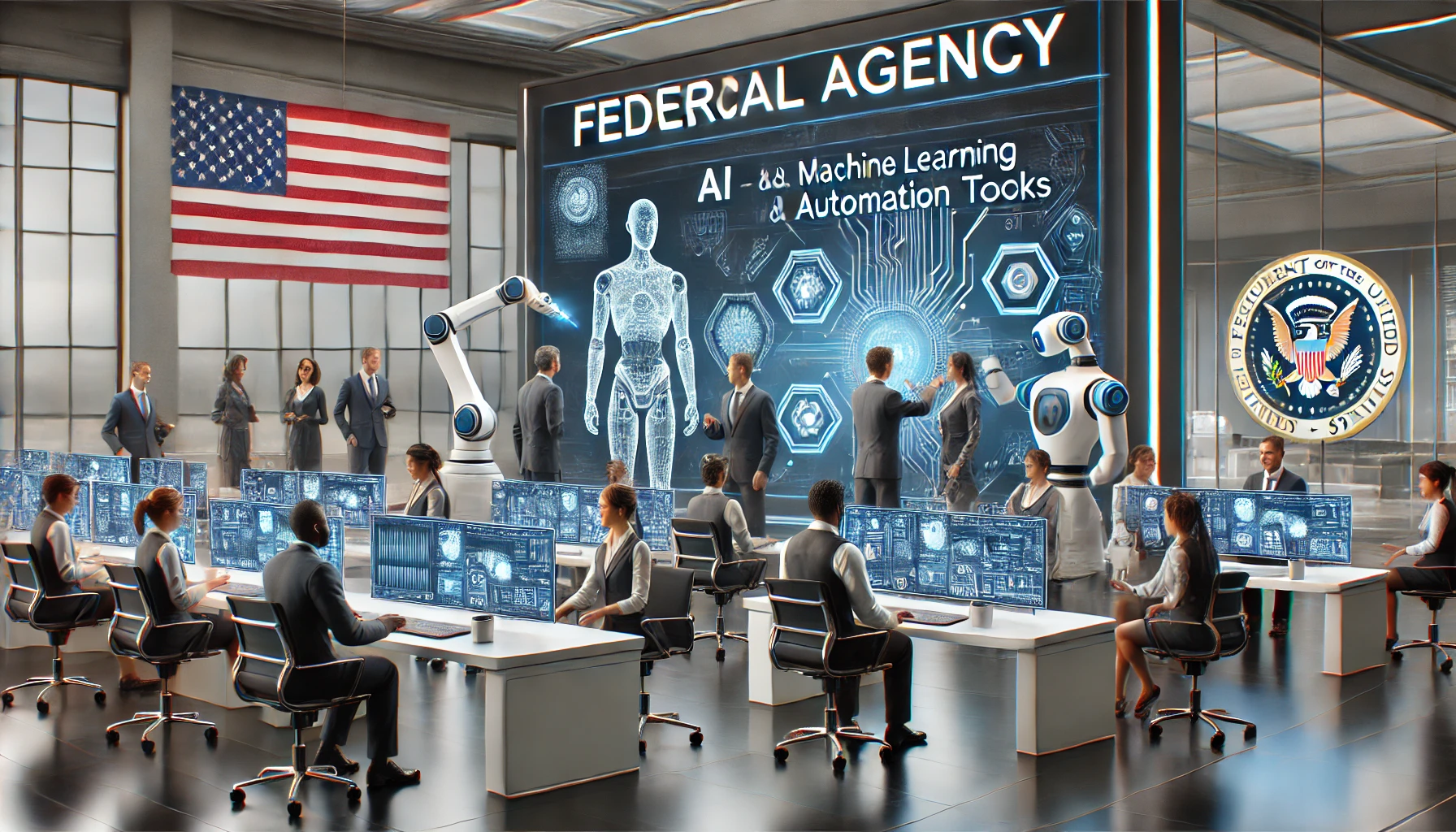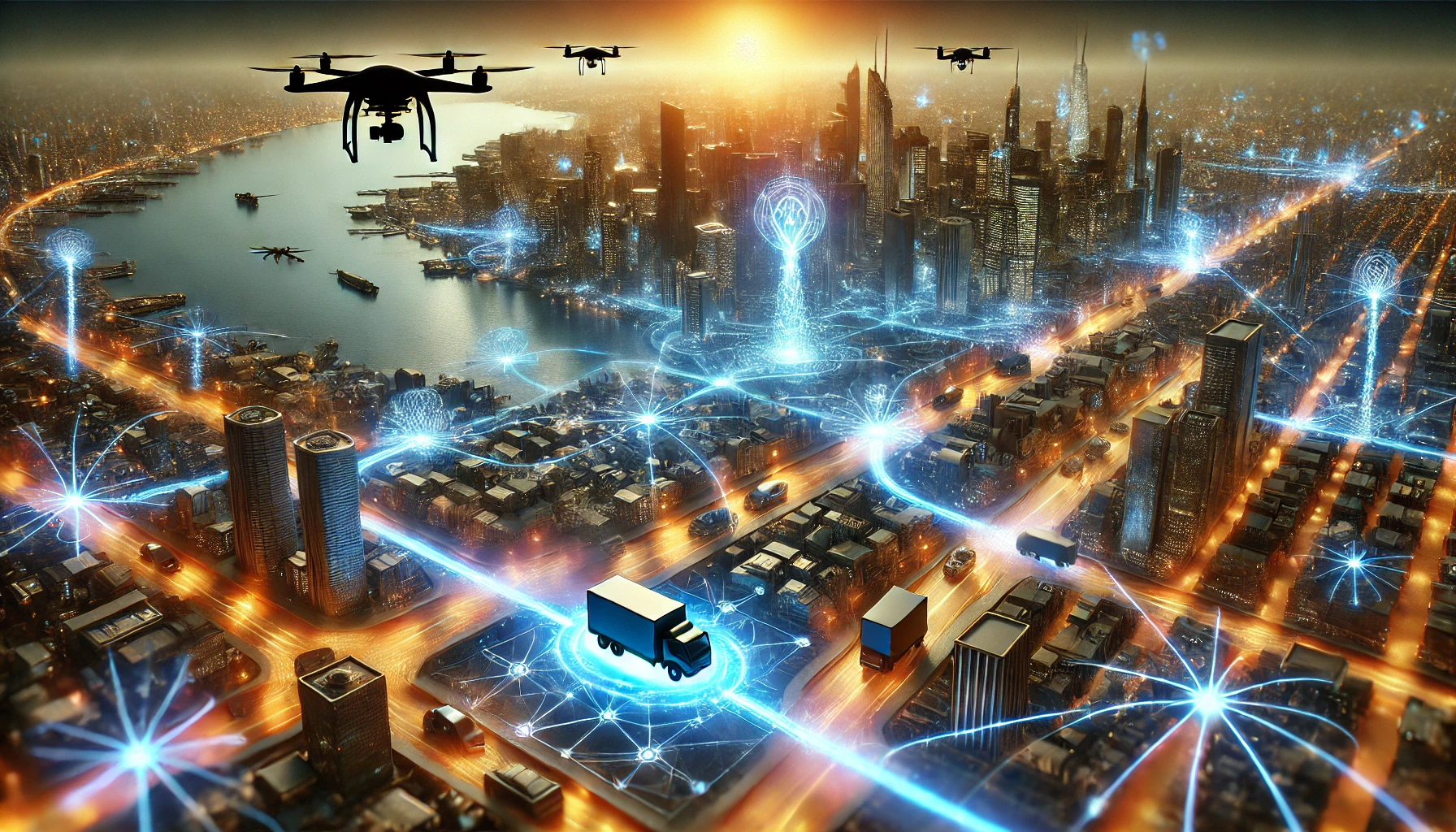AI agents are rapidly transforming government operations, enhancing efficiency and security. This article explores federal agencies’ adoption of AI agents, focusing on their integration, operational efficiencies, security enhancements, and ethical innovations. Learn how AI agents streamline processes, safeguard data, and offer solutions to ethical challenges, providing a comprehensive view of this crucial evolution.
Pioneering Government Efficiency: AI Agent Integration in Federal Agencies

The integration of AI agents within federal agencies represents a pivotal shift in how government functions are administered. This transition is propelled by the critical need for higher efficiency, superior citizen services, and more informed decision-making. By leveraging AI technologies, federal agencies can achieve significant advancements in automating tasks, elevating cybersecurity standards, and modernizing governmental operations.
AI agents bring forth a wave of benefits notably in the realms of efficiency and automation. These software entities are capable of assuming control of repetitive and mundane tasks, which essentially liberates government employees to focus their energies on more strategic and complex duties. The result is a notable increase in productivity and a reduction in stress levels among human resources. Furthermore, by adopting AI-powered tools such as conversational interfaces and self-service portals, agencies enhance the accessibility and user experience of government services, directly contributing to improved citizen services. Additionally, through predictive analytics, AI agents help anticipate and address the diverse needs of citizens proactively, thus ensuring a more responsive governmental apparatus.
In terms of cybersecurity, AI agents are redefining risk management protocols within federal agencies. These sophisticated tools have the capability to detect threats and anomalies with an efficacy that surpasses traditional security methods. They serve as vigilant guardians ensuring that the integrity and security of governmental systems are proactively preserved, thus fortifying the trust that citizens place in their governmental institutions. AI also enables federal agencies to harness vast amounts of data to make data-driven decisions. By providing insightful analytics, AI agents inform policy decisions and strategic planning, leading to more effective administration and governance.
Despite these promising advances, the adoption of AI presents its challenges, not least among them being funding constraints. Many agencies operate within stringent budget frameworks that can hinder the acquisition and implementation of AI technologies. To combat this, it is advocated that at least 1% of federal agency budgets be allocated towards AI modernization efforts. Additionally, there is a pronounced talent shortage that hampers AI adoption, as the federal government faces stiff competition from the private sector for skilled AI professionals. Thus, a concerted effort must be made to invest in AI skills training for existing staff, while also enhancing recruitment practices to attract more expertise in AI.
Moreover, the successful integration of AI agents necessitates modernized infrastructure and data management. This involves overhauling existing IT systems and ensuring robust data management practices—including security and compliance with national regulations. Streamlining procurement processes through reforms such as the Federal Acquisition Streamline Act can also facilitate smoother integration of AI technologies.
Looking ahead, holistic IT modernization is seen as the future directive for federal agencies seeking to fully benefit from AI integration. This entails a comprehensive approach that blends AI with other emerging technologies like quantum computing and edge computing. Collaborations with the private sector will likely become a strategic part of federal efforts, enabling access to cutting-edge AI solutions and expertise that can fast-track governmental AI adoption. The combined impact of these efforts promises to transform federal agency operations, setting a new standard for efficiency, service quality, and national security.
Harnessing AI Agents for Operational Excellence

AI agents are at the forefront of transforming business operations, spurring a leap in operational efficiency across industries. These intelligent systems harness technologies such as machine learning and natural language processing to carry out sophisticated tasks independently, significantly reducing the need for direct human intervention. As businesses continue to integrate AI agents, they unlock new realms of efficiency, innovation, and strategic decision-making.
AI agents excel in task automation, liberating human workers from mundane and repetitive activities. Whether it’s automating data entry, managing schedules, or generating reports, these agents streamline processes and reduce human errors. This reallocation of resources towards more strategic initiatives not only saves time but substantially lowers operational costs. As organizations embrace automation, some have reported noteworthy savings, up to $80,000 per month, illustrating the tangible financial benefits AI agents bring to the table.
The drive for streamlined operations is another area where AI agents demonstrate their prowess. They meticulously analyze workflows, pinpoint inefficiencies, and orchestrate improvements that enhance productivity. In the manufacturing sector, adopting AI for predictive maintenance has boosted production efficiency by 15% and diminished downtime by 20%. This capacity for optimization ensures that best practices are always employed, pushing organizations toward operational excellence.
In terms of complex decision-making, AI agents are indispensable. They synthesize massive datasets, identify patterns, and adapt their strategies to evolving circumstances, which is crucial for enhancing decision-making processes. The ability of these agents to predict market trends with impressive accuracy—between 60% and 80%—empowers businesses to stay competitive by anticipating and reacting to market shifts effectively.
AI agents also support businesses in seamlessly scaling their operations. They adeptly manage increased demands without sacrificing performance consistency. Financial institutions, for instance, have seen a dramatic 82% drop in operational costs while maintaining high-quality service by integrating AI agents into their workflows.
A standout capability of AI agents is their real-time problem-solving skills. They respond swiftly to emerging challenges, whether addressing supply chain disruptions or customer service inquiries. In inventory management, systems driven by AI have minimized stockouts by 35% and increased sales by 10%, underscoring their positive impact on operational efficiency.
Furthermore, AI agents offer data-driven insights that are crucial for strategic planning. By analyzing extensive datasets, they reveal vital trends, enabling companies to make informed decisions that optimize outcomes. These insights are indispensable for financial forecasting and market prediction, ultimately leading to improved business performance.
Beyond operational gains, AI agents enhance both the customer and employee experience. They tailor customer interactions to improve satisfaction and relieve employees from routine tasks, boosting workplace morale. In certain industries, such as healthcare and finance, AI agents take on critical roles—from automating administrative tasks to aiding in fraud detection and market analysis.
However, along with these transformative benefits come challenges that require attention. Concerns about data security, integration hurdles, and the necessity for workforce education must be addressed to fully leverage the advantages of AI agents effectively.
Ultimately, AI agents are redefining the operational landscape by infusing efficiency, precision, and scalability into business processes. Their potential to automate and augment human work positions them as vital assets for companies poised for innovation and growth. As these agents continue to evolve, their role in optimizing operations will only expand, paving the way for a future where strategic decision-making and operational excellence are seamlessly intertwined. For further insights on building intelligent systems, you can explore this resource.
Guardians of the Digital Realm: AI Agents Heighten Security

AI agents have become pivotal in reshaping the landscape of security by offering advanced capabilities in threat detection, predictive analytics, and automated responses. These innovations are vital in countering today’s sophisticated cyber threats that often outmaneuver traditional security measures.
AI’s ability to process and analyze vast amounts of data in real-time is transforming threat detection. Through the use of machine learning (ML) and deep learning (DL), AI agents can identify complex patterns and anomalies across diverse datasets that are often missed by human analysts. For instance, ML models are trained using both known (supervised learning) and unknown (unsupervised learning) threats, while DL models emulate human cognitive abilities to detect nuanced attacks. This proficiency allows AI systems to break down barriers in threat identification, providing an essential layer of security that evolves with emerging threats.
Adding to the proactive dimension of security, AI’s predictive capabilities empower organizations to foresee potential vulnerabilities. By leveraging predictive analytics, AI systems can forecast and pinpoint threats with remarkable accuracy, enabling timely interventions. They autonomously correlate threat data, predicting which systems might be targeted next and allowing organizations to adopt preemptive defensive strategies. This ability to look ahead and act before an attack materializes is a game-changer in the cybersecurity domain.
Moreover, AI enhances security through automated responses, significantly reducing the time needed to mitigate threats. Drawing from a repository of constantly updated data, autonomous response systems can swiftly contain breaches or attacks. This rapid action minimizes potential damage and bridges the gap between threat detection and response, transforming what was once a reactive process into a proactive defensive stance.
AI’s impact extends beyond virtual confines into physical security with enhanced video monitoring and analytics. AI-powered solutions classify objects, track movements, and set customized surveillance perimeters, heightening the security landscape. Additionally, facial recognition technology integrates AI for precise access control by distinguishing between authorized users and potential threats, advancing the effectiveness of current security frameworks.
However, the increased complexity with AI systems introduces challenges that need addressing. Implementation hurdles such as governance, risk management, and compliance (GRC) are significant, often delaying AI adoption in enterprises. Ensuring these AI solutions meet rigorous security standards while protecting user data is crucial. Furthermore, AI systems themselves need protection against adversarial attacks and data poisoning—threats targeting the integrity and reliability of AI algorithms.
As AI continues to innovate, future directions in AI security are likely to include deeper integration with technologies like IoT and blockchain, offering more robust multi-layered security solutions. Addressing AI-specific threats and refining predictive capabilities will remain a priority. With its evolving role, AI stands as a sentinel in the digital realm, continually sharpening its arsenal to protect against threats both traditional and novel.
AI’s role in security is profound and growing, highlighting its potential to transform not only how threats are detected but also how they are prevented, thus safeguarding digital environments with unprecedented precision and speed. To learn more about how AI tools are revolutionizing other fields, visit this blog post on AI-driven innovation.
Crafting Ethical AI Agents: A Focus on Responsible Innovation

AI agents have the potential to profoundly benefit society by automating tasks, enhancing productivity, and fostering new frontiers of innovation. However, their integration into various aspects of life necessitates a careful consideration of ethical principles to ensure that their deployment does not inadvertently cause harm. To achieve this, ethical innovations must be embedded throughout the entire lifecycle of AI agent development—from conception to deployment and ongoing operation.
Central to ethical AI implementation is the principle of human-centricity. This approach ensures that AI agents serve human needs and values. By incorporating human-in-the-loop methodologies, we can maximize the alignment of AI outcomes with human expectations. This involves including human judgment at crucial decision points, allowing for oversight and adjustment, enhancing the reliability of AI applications in complex, real-world scenarios.
Furthermore, participatory design is of paramount importance. Engaging a diverse group of stakeholders, including users, developers, ethicists, and communities, guarantees that AI systems reflect a multiplicity of perspectives. This inclusivity helps to build AI systems that are more responsible and socially beneficial, minimizing unintended negative consequences on marginalized groups.
In the realm of fairness and accountability, the mitigation of bias is a pressing challenge. Regular audits and diversity within AI development teams are essential to address this. Employing fairness metrics, such as demographic parity and equalized odds, provides tangible measures to guide developers in creating equitable AI systems. These metrics ensure diverse representation in both the data and the teams, reducing the risk of embedding societal biases into AI algorithms.
Transparency and explainability are crucial for building trust in AI agents. Explainable AI (XAI) facilitates the understanding of AI-driven decisions. Developing transparent models and providing stakeholders with the means to interpret AI outcomes increase accountability. Tools such as model cards offer standardized documentation for AI models, detailing their objectives, performance, and ethical considerations. This transparency is fundamental for stakeholders to assess and trust AI systems.
Ethical challenges also extend to privacy and data security. Implementing privacy-by-design frameworks ensures data is handled responsibly, embedding strong privacy safeguards from the outset. Paired with robust cybersecurity measures, these efforts protect sensitive data from breaches, maintaining user trust and compliance with regulatory standards.
Addressing accountability and governance, implementing comprehensive policies and governance frameworks is non-negotiable. Establishing roles such as AI Ethics Officers provides oversight, ensuring that AI implementations adhere to ethical standards. This governance is crucial for maintaining public trust and mitigating risks associated with unchecked AI development.
The future of ethical AI lies in human-centric development and regulatory compliance. By prioritizing human needs and respecting individual rights, AI agents can complement human intelligence rather than replace it. Staying informed about evolving regulatory landscapes is essential for maintaining ethical integrity and navigating complex legal environments.
Organizations are encouraged to engage in cross-functional collaboration and ethical awareness training. This fosters a culture that values responsible AI use and empowers teams to consider ethical implications in every decision. By implementing these strategies and adopting a comprehensive ethical framework, we can ensure that AI innovations are both technologically advanced and ethically sound, promoting trust and societal benefit.
Final thoughts
AI agents offer federal agencies numerous advantages, from automation and enhanced efficiencies to security improvements and ethical management. By judiciously implementing AI agents, federal sectors can streamline operations, safeguard data, and maintain ethical standards. This ongoing evolution requires a balance between technological advancement and careful oversight to ensure AI agents contribute positively to government objectives.
Unlock the potential of AI in your government agency. Partner with Colossal to innovate and excel in digital transformation.
Learn more: https://colossal-llc.com
About us
Colossal offers end-to-end AI consulting and implementation services designed to turn potential into performance. From initial strategy and use case identification to model development, deployment, and operational support, we help organizations harness AI in a way that’s practical, secure, and aligned with mission goals. Whether you’re looking to automate workflows, optimize decision-making, or unlock insights from complex data, our team brings deep expertise in machine learning, natural language processing, and computer vision—built for real-world impact, not just buzzwords.












